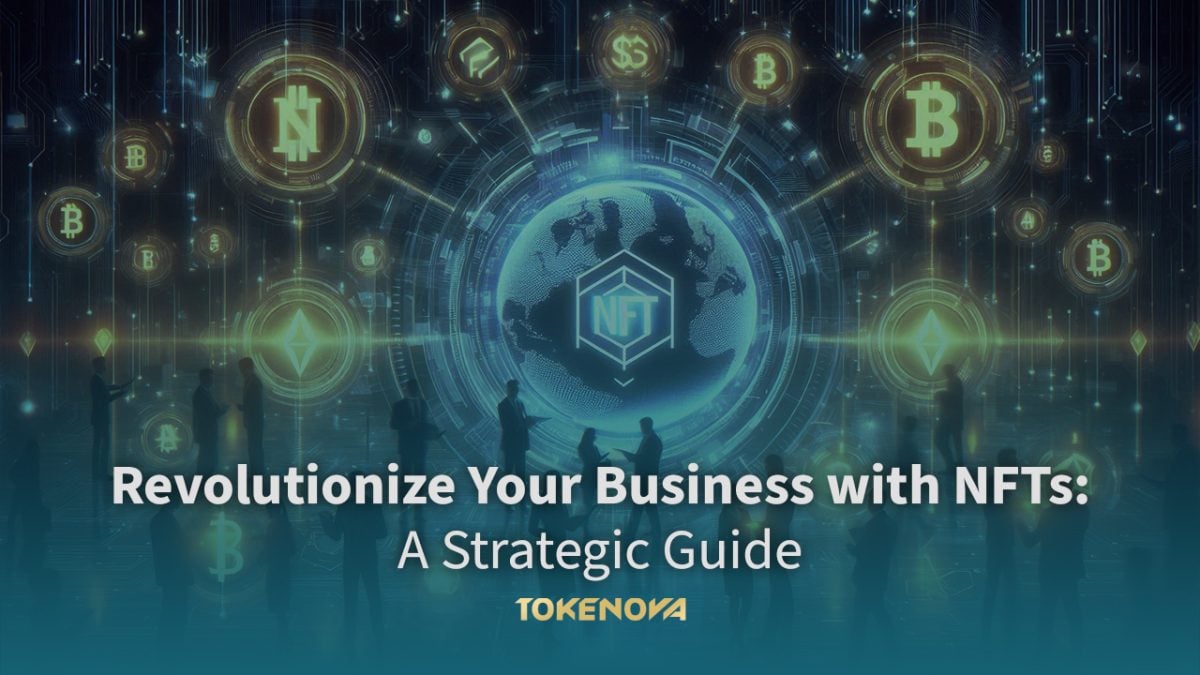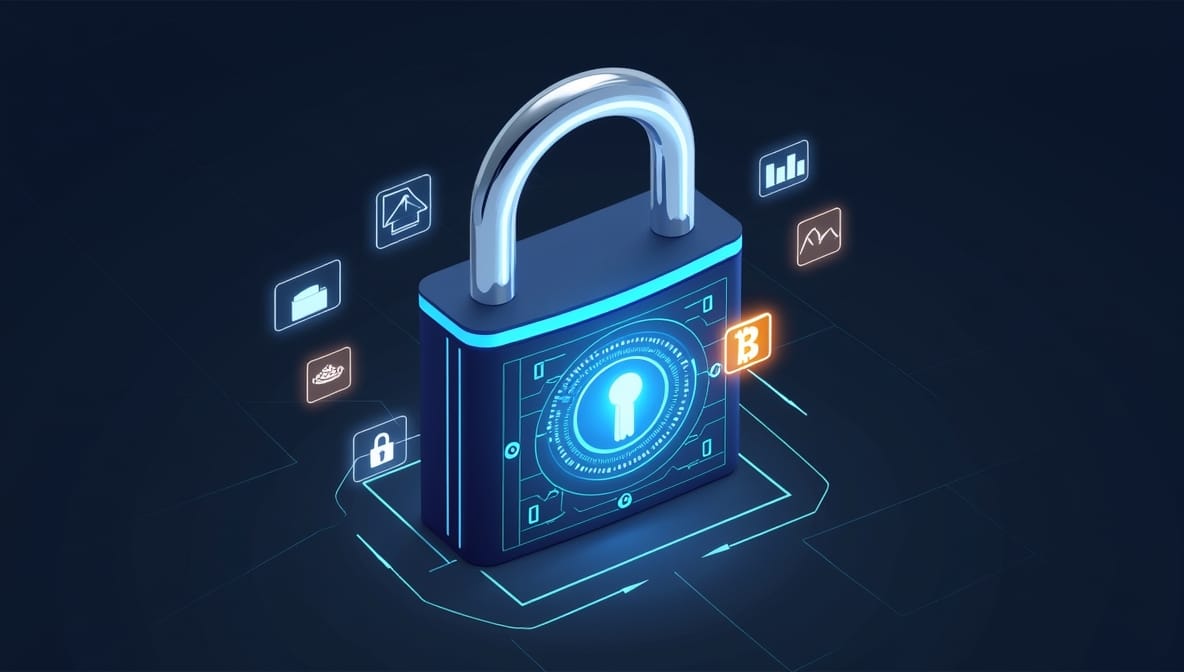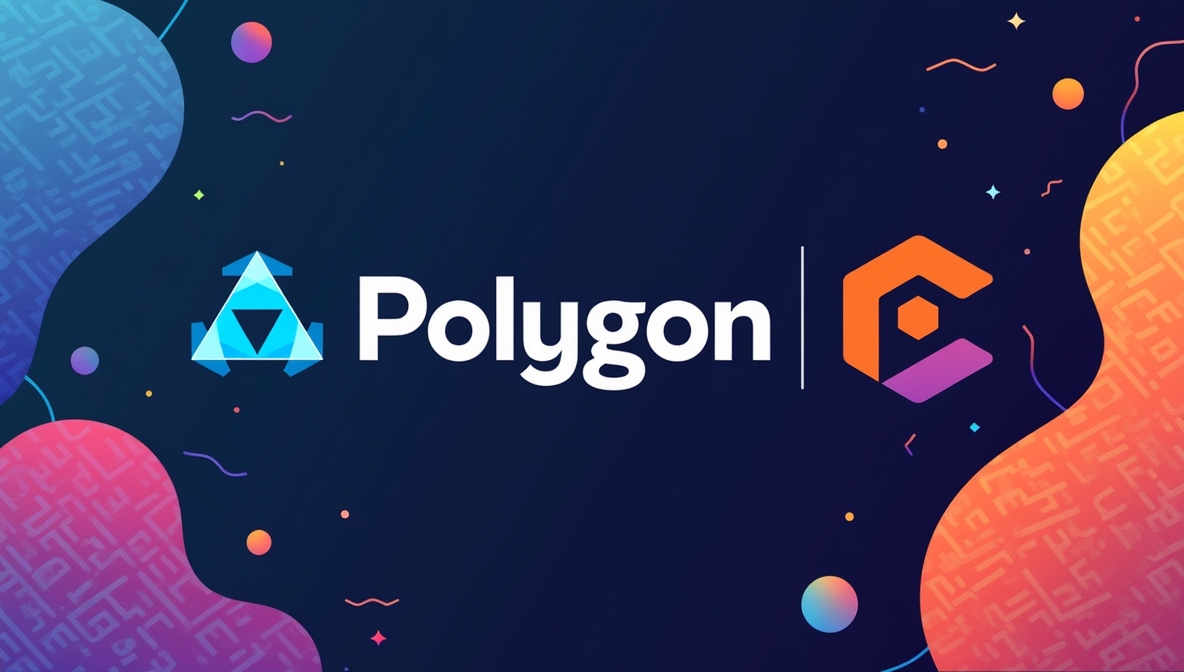Are you looking to revolutionize your business with blockchain technology? NFTs (Non-Fungible Tokens) have evolved from digital collectibles into powerful business tools that can transform operations across industries. While initially associated with digital art, forward-thinking companies now leverage NFTs to solve real business challenges, create new revenue streams, and build stronger customer relationships. This comprehensive guide explores how to use NFTs in business contexts and provides actionable implementation strategies.
Understanding NFTs for Business Applications
NFTs represent unique digital assets on a blockchain that cannot be replicated or exchanged on a one-to-one basis like cryptocurrencies. In business environments, they function as digital certificates of ownership and authenticity for various assets, both digital and physical.
Their non-fungible nature makes them ideal for representing ownership of unique items or rights, creating verifiable scarcity in digital environments. While NFTs gained prominence through digital art, their applications span much wider, covering fields like art, music, games, and virtual property.
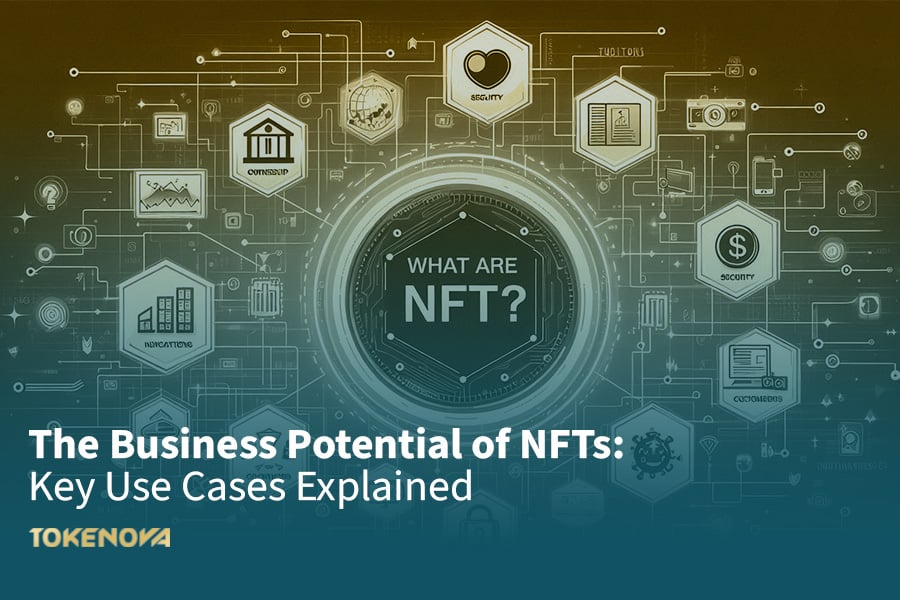
NFTs leverage blockchain’s immutable ledger to offer businesses unprecedented opportunities to redefine customer interactions, asset management, and value creation. They enable innovative business models that weren’t possible before blockchain technology, allowing enterprises to secure data, facilitate transactions, reward consumer loyalty, and track and protect copyrights.
Strategic Business Value of NFTs
The significance of NFTs extends far beyond the initial hype cycle. They’re already demonstrating substantial impacts across entertainment, sports, fashion, technology, gaming, real estate, education, healthcare, and philanthropy sectors.
For business leaders and entrepreneurs, NFTs represent opportunities to:
- Create new revenue streams through digital asset monetization
- Build stronger customer relationships through exclusive ownership experiences
- Solve persistent business problems like counterfeiting and IP protection
- Differentiate brands in competitive marketplaces
- Streamline operations through blockchain-based verification
Key Business Applications of NFTs
Using NFTs in your business requires exploring their diverse applications across different operational areas. Many forward-thinking companies are already discovering how to use NFTs in business to transform everything from customer loyalty to supply chain management. When considering how you can use NFTs in your business, it’s essential to evaluate which applications align with your specific business objectives and customer needs.
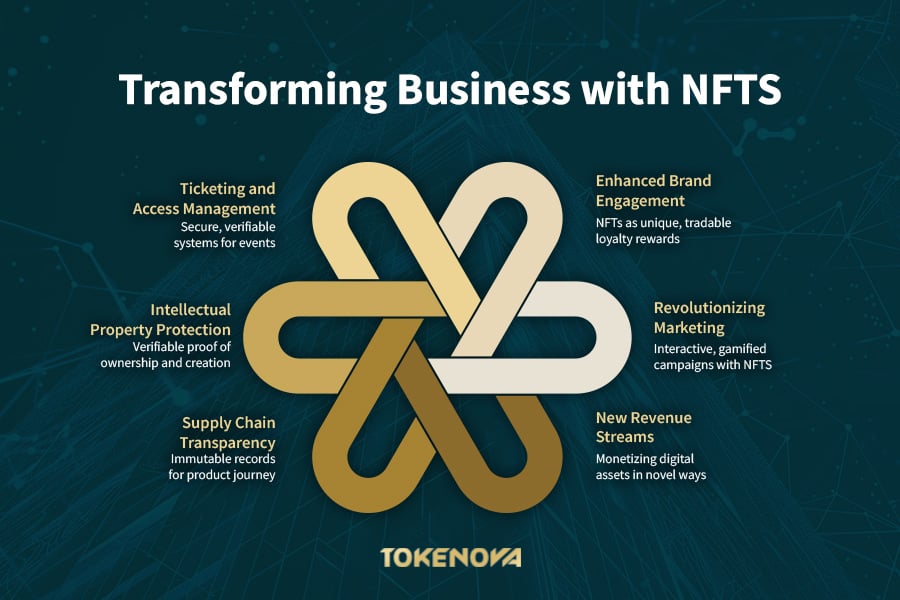
1. Enhanced Brand Engagement and Loyalty Programs
Traditional loyalty programs often suffer from low engagement and perceived value. NFTs transform loyalty rewards into unique, tradable digital assets that customers genuinely value.
Businesses can innovate loyalty programs with NFTs, allowing customers to exchange tokens for unique experiences or premium products. Unlike conventional points that often expire or lack transferability, NFT-based rewards maintain or potentially increase in value over time.
NFT-based loyalty programs can take many forms:
- Limited edition digital collectibles earned through purchases
- Tiered membership NFTs unlocking different levels of perks
- Early access passes for product launches or special events
- Virtual goods in branded metaverse experiences
2. Revolutionizing Marketing and Advertising
NFTs enable interactive, gamified marketing campaigns that engage customers in entirely new ways. NFT marketing helps businesses expand their reach, educate users about their offerings, and create market awareness about their digital products.
These tokens facilitate personalized experiences that resonate with customers on a deeper level than traditional advertising. By combining digital assets with narrative elements, NFTs enable unique brand storytelling opportunities.
Examples of NFT-based marketing innovations include:
- NFT-gated content accessible only to token holders
- Interactive campaigns where customers collect NFT pieces to unlock rewards
- Gamified marketing experiences utilizing NFTs as in-game items
- Collaborative storytelling where brand narratives evolve based on NFT ownership
3. Creating New Revenue Streams and Business Models
Perhaps the most compelling business application of NFTs is their ability to create entirely new revenue streams by monetizing digital assets in previously impossible ways. NFTs can represent property ownership and investment stakes, facilitating fractional ownership and simplifying asset transferability.
This capability enables businesses to sell digital products with verifiable ownership and scarcity – qualities that were impossible to establish in the digital realm before blockchain. Meanwhile, fractional ownership models democratize access to expensive assets by dividing them into affordable shares.
4. Improving Supply Chain Transparency and Traceability
Supply chain management represents one of the most promising enterprise applications for NFTs. By creating immutable records of a product’s journey from manufacturing to consumer, NFTs enhance transparency and ensure authenticity.
Blockchain technology transforms supply chain operations by providing an immutable record to track item provenance, monitor location in real-time, and automate document and regulatory submissions along any route.
Real-world implementations are already demonstrating value: “Kaleido built a project that used NFTs to make tuna traceable”. By connecting physical products to blockchain through technologies like QR codes linked to NFTs, businesses can track goods from manufacturing plant to retail location and through resale.
5. Protecting and Monetizing Intellectual Property
NFTs offer powerful new tools for intellectual property protection by providing verifiable proof of ownership and creation. In the context of copyright protection, NFTs provide proof of ownership and authentication of unique digital works in business environments.
This capability addresses longstanding issues with digital piracy and copyright infringement, particularly for creators and businesses producing digital content. NFTs can also represent patents, allowing them to be “cataloged, searched, and interacted with via the blockchain once it exists as an NFT”.
6. Ticketing and Access Management
NFTs provide secure, verifiable systems for managing access to events, memberships, and exclusive content. Businesses can transform event tickets into NFTs, offering enhanced value through collectibility and unlocking exclusive event perks.
This approach addresses common issues with traditional ticketing, including forgery, scalping, and secondary market control. NFT tickets can include programmable royalties for creators on secondary sales and maintain value beyond the event as collectibles.
Benefits of Using NFTs for Business
When evaluating the usages of NFTs in one’s business, understanding their multifaceted benefits is crucial. NFTs offer advantages that traditional digital assets cannot provide, creating unique opportunities for businesses across industries. If you’re wondering how you can use NFTs in your business effectively, examining these benefits can help identify the most valuable implementation strategies for your specific needs.
Increased Brand Loyalty and Customer Engagement
NFTs foster brand loyalty through exclusivity, community building, and tangible digital ownership. The collectible nature of NFTs creates emotional connections with customers, driving deeper engagement than traditional loyalty programs.
As customers invest in branded NFTs, they become stakeholders in the brand’s ecosystem, leading to stronger loyalty and advocacy. These qualities make NFTs more compelling than conventional digital assets, increasing their perceived value to customers.
New Revenue Generation Opportunities
NFTs unlock novel revenue streams by enabling businesses to monetize digital assets, create secondary markets, and implement royalty systems. Effective NFT marketing can help enhance sales and generate additional revenue.
The capacity to program royalties into NFT smart contracts ensures that businesses continue benefiting from their digital assets even after initial sale. This creates sustainable revenue models previously impossible in traditional digital economies.
Enhanced Brand Differentiation and Innovation Image
Adopting NFTs positions businesses as innovative and forward-thinking, helping them stand out in competitive markets. Many industries have begun using NFTs creatively to raise new business innovation opportunities in entrepreneurship.
By incorporating NFTs into their business strategy, companies differentiate themselves from competitors relying on traditional approaches. This innovation image attracts tech-savvy customers and partners who value cutting-edge solutions.
Improved Operational Efficiency and Transparency
NFTs built on blockchain technology enhance operational efficiency and transparency across various business processes. The immutable nature of blockchain records reduces manual verification and reconciliation needs, streamlining operations and reducing costs.
These transparency benefits extend to customers, who gain greater visibility into product origins and business practices. This builds trust and meets growing consumer demands for ethical and transparent business operations.
How to Implement NFTs in Your Business
Implementing NFTs in your business requires careful planning and strategic execution. Understanding how to use NFTs in business contexts means developing a comprehensive implementation strategy that addresses everything from technology selection to community management. This section provides a systematic approach for businesses wondering how they can use NFTs in their operations successfully.
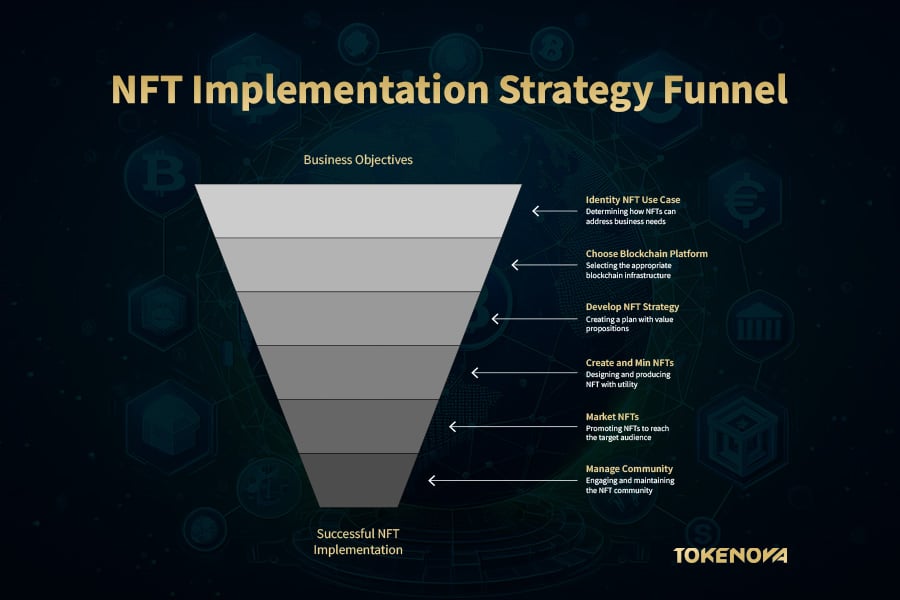
1️⃣Define Clear Business Objectives and NFT Use Case
The first implementation step is clearly defining business objectives and identifying the most suitable NFT use case. When developing an NFT strategy, businesses need to define objectives and business model, deciding what type of NFTs to support and what kind of services to offer.
Begin by identifying specific business problems or opportunities that NFTs could address:
- Are you looking to enhance customer engagement?
- Do you want to create new revenue streams?
- Is protecting intellectual property a priority?
- Could your supply chain benefit from improved transparency?
2️⃣Choose the Right Blockchain Platform and NFT Marketplace
Selecting appropriate blockchain infrastructure is crucial for successful implementation. “The next step is to choose the blockchain you want to use for your NFT marketplace. Ethereum is currently the most popular blockchain for NFTs, but there are other options such as Binance Smart Chain and Flow. You need to consider factors such as transaction fees, scalability, and security when choosing your blockchain”.
Each blockchain platform offers different advantages:
- Ethereum: Largest ecosystem and highest liquidity, but higher gas fees
- Binance Smart Chain: Lower fees and faster transactions
- Flow: Designed specifically for NFTs with better scalability
- Solana: High performance with low transaction costs
3️⃣Develop a Compelling NFT Strategy and Value Proposition
Creating a compelling NFT strategy requires defining clear value propositions for both your business and customers. The components of a successful NFT plan include identification of your target audience and understanding how to engage your potential investors.
Your NFT strategy should address:
- What unique value will your NFTs offer customers?
- How will they integrate with existing products or services?
- What benefits will NFT holders receive?
- How will you ensure long-term value for NFT owners?
4️⃣Create and Mint Your NFTs
When creating and minting NFTs, carefully consider design, utility, and scarcity to maximize value and appeal. “Smart contracts are the backbone of any NFT marketplace. You need to build smart contracts that can create, manage, and transfer NFTs on the blockchain”.
Key considerations for NFT creation include:
- Visual design and aesthetics aligned with your brand
- Utility features providing ongoing value to holders
- Scarcity levels creating appropriate exclusivity
- Metadata enhancing the NFT’s functionality
5️⃣Market and Distribute Your NFTs
Effective marketing and distribution are essential for NFT success. An NFT marketing plan involves “promoting your digital artwork across identified NFT platforms, crypto communities, and social media channels” to reach your target audience.
Effective NFT marketing strategies include:
- Building anticipation through pre-launch campaigns
- Leveraging social media and NFT communities
- Collaborating with influencers in relevant spaces
- Creating educational content about your NFTs’ value
6️⃣Manage and Engage Your NFT Community
Building and maintaining an engaged community around your NFTs is crucial for long-term success. NFTs can be leveraged for fundraising and community building to initiate collections for funding projects or causes, fostering community engagement and support.
Effective community management strategies include:
- Creating dedicated channels for NFT holders to connect
- Providing exclusive content and experiences
- Soliciting feedback for future NFT developments
- Rewarding community participation and advocacy
Challenges and Considerations
When implementing NFTs in business, several critical challenges must be addressed for successful deployment.
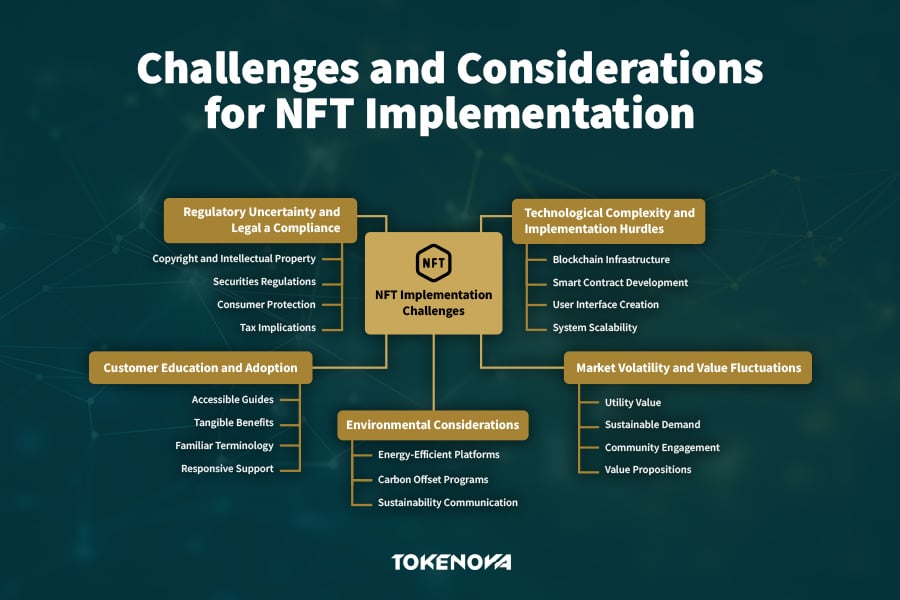
Regulatory Uncertainty and Legal Compliance
The NFT regulatory landscape remains in flux, with legal frameworks still evolving. Key considerations include:
- Copyright and intellectual property rights for digital assets
- Securities regulations potentially applying to certain NFT types
- Cross-jurisdictional consumer protection requirements
- Tax implications for NFT transactions and royalties
Recent anti-money laundering guidance indicates increasing regulatory scrutiny of NFT businesses. When determining how to use NFTs in your business, consult legal experts specializing in blockchain technology to navigate compliance requirements.
Technological Complexity and Implementation Hurdles
NFT implementation presents significant technical challenges, including:
- Blockchain infrastructure selection and integration
- Smart contract development and security
- User-friendly interface creation for non-technical customers
- System scalability for growth and demand fluctuations
Creating interoperable NFT systems across different blockchains adds further complexity. Most businesses benefit from partnering with experienced blockchain developers or using platforms that simplify how you can use NFTs in your business model effectively.
Market Volatility and Value Fluctuations
NFT markets experience substantial price volatility, creating risks for both businesses and customers. To mitigate these risks:
- Emphasize utility value over speculative potential
- Build sustainable demand through ongoing benefits
- Maintain active community engagement during market downturns
- Establish clear value propositions beyond collectibility
Communicate realistic expectations to maintain customer trust when determining how you can use NFTs sustainably in your business strategy.
Environmental Considerations
The environmental impact of blockchain energy consumption requires attention, particularly with Proof of Work networks. Address these concerns by:
- Selecting energy-efficient blockchain platforms using alternative consensus mechanisms
- Implementing carbon offset programs
- Transparently communicating your sustainability approach
Proactively addressing environmental considerations can differentiate your NFT offerings and align with corporate social responsibility goals.
Customer Education and Adoption
Overcoming skepticism requires effective customer education. Successful approaches include:
- Creating accessible guides explaining blockchain fundamentals
- Emphasizing tangible benefits over technical aspects
- Using familiar terminology to bridge understanding gaps
- Providing responsive support for NFT-related questions
For businesses targeting mainstream consumers, simplifying the user experience and clearly communicating benefits are essential aspects of successfully using NFTs in business.
Real-World Success Stories
Understanding how to use NFTs in business contexts becomes more tangible when examining successful implementations. These real-world examples demonstrate how different industries are leveraging NFT technology to create value and solve business challenges. By studying these cases, businesses can gain insights into how they can use NFTs in their own operations effectively.
Sports and Athletics: Adidas and NBA
Major sports organizations have successfully implemented NFTs into their business models. Adidas entered the NFT space with digital collectibles tied to physical merchandise, granting owners access to exclusive products and ongoing digital experiences.
The NBA embraced NFTs through NBA Top Shot, a platform allowing fans to collect NFT “moments”—video clips of memorable plays. This created new revenue streams while offering fans novel ways to engage with basketball.
These implementations demonstrate how NFTs enhance brand experiences in sports by creating new revenue channels, offering fans unique ways to express their fandom, building exclusive communities around digital ownership, and bridging physical and digital experiences.
Luxury and Fashion: NFTs for Authentication and Exclusivity
Luxury brands have explored NFTs for authentication and exclusive experiences. NFT technology can be used in the fashion industry for design protection and counterfeiting measurement.
“NFT with blockchain technology could be used to protect how it works by making a unique signature to the digitized asset it is associated with. Real physical goods could be linked to the digitized version with NFT technology for recognition and protective purposes”.
Bulgari has launched a limited-edition watch that features a QR code, linking to a digital NFT, which serves as proof of ownership and authenticity. This “phygital” approach effectively bridges the physical and digital realms, enhancing both trust and exclusivity.
Gaming and Entertainment: In-Game Assets and Experiences
The gaming industry leads NFT adoption, with games allowing players to truly own in-game assets. NFTs revolutionize in-game asset ownership, enabling players to own, trade, and sell their digital items beyond the game’s confines.
Ubisoft launched Ubisoft Quartz, integrating NFTs as “Digits” that players can earn and use in games like Ghost Recon Breakpoint, pioneering NFT use in mainstream gaming.
Conclusion
NFTs represent a transformative technology with diverse business applications. They enhance customer engagement, create new revenue streams, improve operational transparency, and protect intellectual property. Key benefits include increased engagement, brand differentiation, and operational efficiency, making them valuable for forward-thinking businesses. By implementing NFTs with clear objectives and continuous refinement, companies can gain a competitive edge. As blockchain technology matures, organizations that master NFTs will be poised to create innovative customer experiences and business models previously unattainable in traditional commerce.

